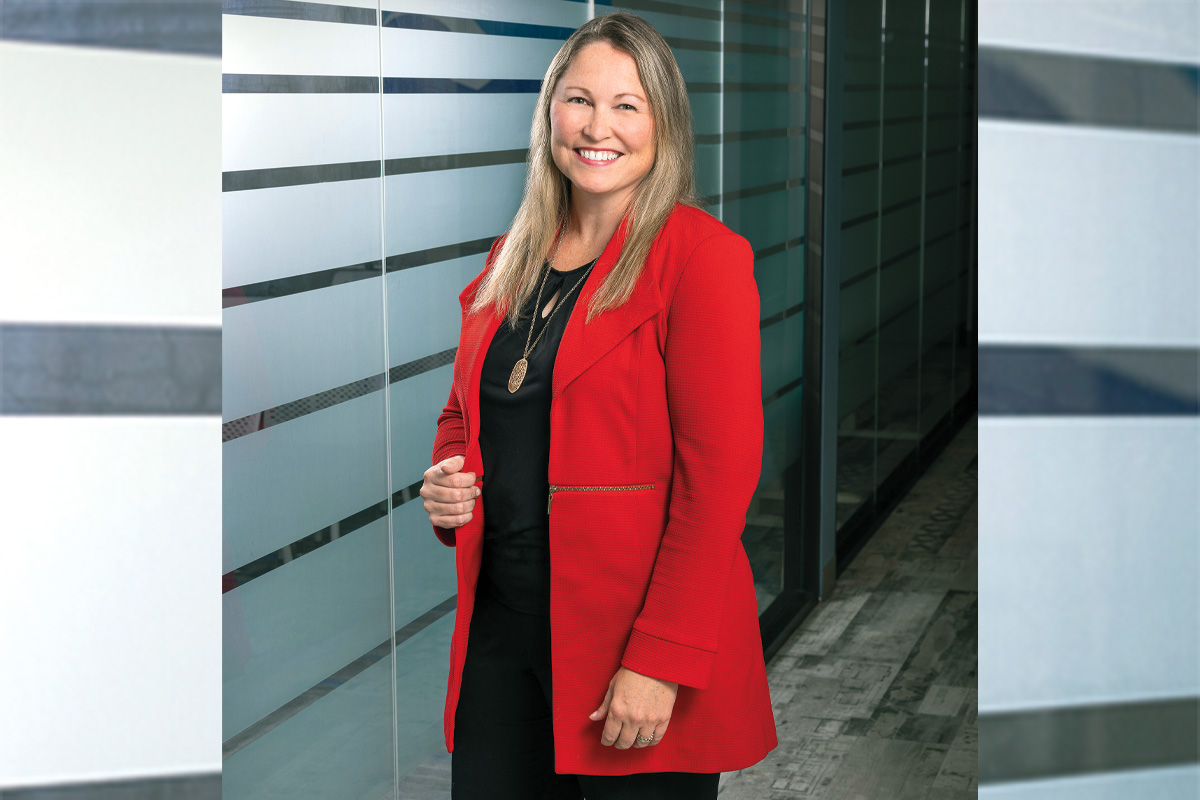Tracy Williams has a go-to question for the people she works with, one that can be both disarming and spark innovation.
“For me,” says the new CEO of Florida Health Care Plans (FHCP), “it’s coming in and asking the team, ‘What’s your utopia? If money didn’t matter and everything was available to you, what would you do’ to improve operations or customer care? When I see that person’s eyes light up and they kind of sit up in their chair and they’re like, ‘Wait, really?’ … Now we can start to reimagine.”
“This has been my favorite question for years to ask a leader,” says Williams, who has asked it a lot since becoming FHCP’s interim CEO a year ago. Her performance impressed leaders at parent company GuideWell, itself a part of Florida Blue, enough that they removed the interim label in April following a national search.
GuideWell bought 51-year-old FHCP back in 2009. It provides both health insurance plans and direct care for more than 100,000 members in Brevard, Flagler, St. Johns, Seminole and Volusia counties. Williams is FHCP’s third CEO in less than two years — the turnover coming at a time when GuideWell wants to bring FHCP’s operations closer to “the mother ship,” says GuideWell Head Jim Boyman.
Williams has been with GuideWell five years and is tasked with smoothing that transition while preserving FHCP’s “hyperlocal” customer care and getting longtime FHCP staffers on board with the changes.
“They had a great culture, but it was insulated,” Boyman says. “They didn’t necessarily see where they fit in because they had been for 50 years essentially this independent company thriving in that market. And then they’re part of this bigger organization, so she did this amazing job of bridging that gap of helping them understand … how they could actually benefit” working closer with Guidewell.
Williams spent much of her first several months away from her desk, holding meetings and visiting FHCP offices. “Anytime you’ve had that type of change especially at the CEO level, for whatever reasons, the staff and the team underneath start to wonder what’s going on,” she says. “So it’s very important for me to be visible, for me to start to build trust.”
The utopia question is a part of that. About half the time, people come up with ideas that “you can implement,” Williams says. “The other part might be more aspirational or out of range, but it allows people to at least think outside the box.”
One idea is bearing fruit just since Williams became CEO after a “utopia” question suggested cross-training between member services and new-member onboarding teams. It is more efficient for the company and easier for the customer, helping members set up immediate doctor’s appointments, connecting them with pharmacies and more, she says.
“There were no additional FTEs needed. It was the cross-training, it was the talking, it was the understanding that you’re not going to answer a question like a doctor. You’re going to answer the question to help the member navigate this new plan that they bought.”













